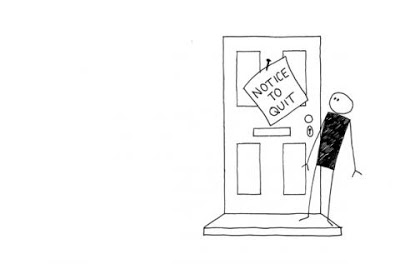
COMPANY OBLIGATIONS AFTER INCORPORATION by Adedunmade Onibokun
 |
| Credits – indianweb2.com |
Many
people who have incorporated companies in Nigeria sometimes don’t know the
steps to take after incorporation. Many do not know if they are required to
file returns or even how to go about their tax registrations and payments. Via
this blog, I will be sharing post incorporation obligations for company owners
as it relates to the Corporate Affairs Commission (CAC) and on subsequent posts
share tax obligations for every new and existing company registered under the
Companies and Allied Matters Act.
people who have incorporated companies in Nigeria sometimes don’t know the
steps to take after incorporation. Many do not know if they are required to
file returns or even how to go about their tax registrations and payments. Via
this blog, I will be sharing post incorporation obligations for company owners
as it relates to the Corporate Affairs Commission (CAC) and on subsequent posts
share tax obligations for every new and existing company registered under the
Companies and Allied Matters Act.
Please
note that these post incorporation obligations are in line with the provisions
of Companies and Allied Matters Act (CAMA).
note that these post incorporation obligations are in line with the provisions
of Companies and Allied Matters Act (CAMA).
1.
Every company must keep a
register of its members as provided for under Section 83 (1) – (5) and Section
84 (1) – (4).
Every company must keep a
register of its members as provided for under Section 83 (1) – (5) and Section
84 (1) – (4).
2.
Every company having more
than 50 members must keep an index of its members except the register is in
such a form as to constitute an index. Section 85 CAMA.
Every company having more
than 50 members must keep an index of its members except the register is in
such a form as to constitute an index. Section 85 CAMA.
3.
Section 97 states that all
public companies shall keep a register of interest in shares.
Section 97 states that all
public companies shall keep a register of interest in shares.
4.
Every public company shall
within a period of 6 months from the date of its incorporation hold a general
meeting of the members of the company as stated in Section 211 CAMA.
Every public company shall
within a period of 6 months from the date of its incorporation hold a general
meeting of the members of the company as stated in Section 211 CAMA.
5.
Every company shall in
each year hold a general meeting as its annual general meeting in addition to
any other meetings held in that year and shall specify such in the notice
calling it as stated in Section 213 (1) CAMA. It should be noted that not more
than 15 months must elapse between one general meeting and the next.
Every company shall in
each year hold a general meeting as its annual general meeting in addition to
any other meetings held in that year and shall specify such in the notice
calling it as stated in Section 213 (1) CAMA. It should be noted that not more
than 15 months must elapse between one general meeting and the next.
6.
Every company shall cause
minutes of all proceedings of meetings as provided for under Section 241(1) –
(4) to be entered in books for that purpose.
Every company shall cause
minutes of all proceedings of meetings as provided for under Section 241(1) –
(4) to be entered in books for that purpose.
 |
| Credit – hatechsolutions.com |
7.
By virtue of the
provisions of Section 246(2) CAMA, any company whose number of directors falls
below two, shall within one month of its so falling appoint new directors and
it shall not carry on business after the expiration of one month, unless such
new directors are appointed.
By virtue of the
provisions of Section 246(2) CAMA, any company whose number of directors falls
below two, shall within one month of its so falling appoint new directors and
it shall not carry on business after the expiration of one month, unless such
new directors are appointed.
8.
The company directors must
have their first meeting not later than 6 months after incorporation as stated
in Section 263 CAMA.
The company directors must
have their first meeting not later than 6 months after incorporation as stated
in Section 263 CAMA.
9.
Every company shall keep
at its registered office, register of its directors and secretaries by virtue
of Section 292(1)CAMA.
Every company shall keep
at its registered office, register of its directors and secretaries by virtue
of Section 292(1)CAMA.
10. Every company must have a
company secretary as stated in Section 293(1).
company secretary as stated in Section 293(1).
11. Every company shall, at least once in every
year make and deliver to the commission an annual return in the form containing
the matters specified in Sections 371, 372 or 373 of the Act as may be
applicable. Provided that accompany need not make a return under the Section
either in the year of its incorporation or if not required by Section 213 of
the Act or hold an annual general meeting during the following year, in that
year.
year make and deliver to the commission an annual return in the form containing
the matters specified in Sections 371, 372 or 373 of the Act as may be
applicable. Provided that accompany need not make a return under the Section
either in the year of its incorporation or if not required by Section 213 of
the Act or hold an annual general meeting during the following year, in that
year.
12. Any change in the
registered Head Office address of the company must be given to the commission
within fourteen days of such a change as provided for under Section 547(2)
CAMA.
registered Head Office address of the company must be given to the commission
within fourteen days of such a change as provided for under Section 547(2)
CAMA.
13. Every company after
incorporation shall paint or affix its name and registration number on the
outside of every office which it carries on business. Section 548(1) CAMA.
incorporation shall paint or affix its name and registration number on the
outside of every office which it carries on business. Section 548(1) CAMA.
14. Every banking company or insurance company or
benefit society shall before it commences business and also in the first Monday
in February and first Tuesday in August in every year during which it carries
on business submit to the commission a statement in the form, in schedule 14 to
the Act.
benefit society shall before it commences business and also in the first Monday
in February and first Tuesday in August in every year during which it carries
on business submit to the commission a statement in the form, in schedule 14 to
the Act.
This
aforementioned obligations are however not exhaustive, as the CAC issues
various regulations from time to time. However, it is important that every
company appoints a company secretary whose duty will be to ensure compliance
with the CAC rules and regulations.
aforementioned obligations are however not exhaustive, as the CAC issues
various regulations from time to time. However, it is important that every
company appoints a company secretary whose duty will be to ensure compliance
with the CAC rules and regulations.
Adedunmade
Onibokun Esq,
Onibokun Esq,
@Adedunmade/Twitter








.jpg)
.jpg)
.jpg)